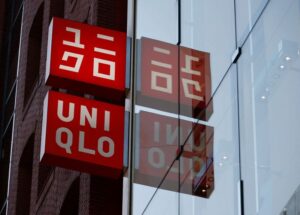Uniqlo Under Fire: The Impact of Sourcing Decisions in China
Uniqlo, the widely recognized casual wear brand, finds itself at the center of a brewing storm in China. Recent statements by Fast Retailing CEO, Tadashi Yanai, suggesting that the company does not source cotton from the Xinjiang region, have prompted calls for a consumer boycott. This area has been embroiled in controversy surrounding allegations of forced labor in recent years, making it a sensitive subject in the global market.
The Trigger: CEO’s Comments
During an interview with the BBC, Yanai expressed that Uniqlo deliberately avoids Xinjiang cotton due to the serious human rights concerns linked to the region. This comment has ignited outrage among some Chinese consumers, leading to the viral spread of hashtags on Weibo calling for a boycott against the brand. Social media users voiced frustration, with one user stating, "With this kind of attitude from Uniqlo, and their founder being so arrogant, they’re probably betting that mainland consumers will forget about it in a few days and continue to buy."
The backlash against Uniqlo highlights a significant moment in the ongoing tensions between Western viewpoints on human rights and China’s economic interests. It also illustrates how a single comment from a corporate leader can shift public sentiment and consumer behavior.
The Geopolitical Landscape
China is a crucial market for Fast Retailing, with over 900 stores across the mainland and Greater China accounting for more than 20% of the company’s revenue. However, the geopolitical stakes are high. The reaction from the Chinese government, as represented by foreign ministry spokesperson Mao Ning, emphasizes the delicate balancing act foreign companies must navigate. Mao urged companies to "eliminate political pressure and bad interference," highlighting the difficulty of maintaining a profitable business relationship with Chinese consumers while also adhering to international standards of human rights.
Lessons from the Past: A Cautionary Tale
Fast Retailing is not the first to encounter consumer backlash in China regarding Xinjiang cotton. In 2021, rival H&M faced intense scrutiny after announcing its decision to halt sourcing from the region due to allegations of forced labor. This decision cost H&M dearly, resulting in the removal of its stores from major e-commerce platforms and disappearing from map apps across China. Other brands such as Nike, Puma, and Adidas also found themselves in the crossfire, illustrating the risks of taking a stand on sensitive issues in a market as significant as China.
The situation for Uniqlo could serve as a cautionary tale for brands contemplating similar actions. Companies must weigh the implications of their sourcing decisions, not only on their public image but on their bottom line. The past experiences of others in this regard demonstrate a clear pattern: consumer sentiment is not easily swayed, and boycotts can have lasting impacts.
Potential Outcomes and Strategies
As the controversy unfolds, it remains to be seen how Uniqlo will navigate the backlash. Will Fast Retailing reconsider its sourcing strategies, or strengthen its commitment to human rights? The company has yet to publicly address these developments, which raises the stakes even higher in a hyper-competitive retail environment.
For investors and stakeholders, it is essential to monitor how Uniqlo responds to these challenges and the broader implications for other brands engaged in the international market. The current geopolitical climate may force companies to adopt more nuanced marketing strategies that are sensitive to regional opinions while balancing their supply chain ethics.
In conclusion, Uniqlo’s situation underscores the complex interplay between global business practices, consumer behavior, and geopolitical landscapes. As this dynamic continues to evolve, the story serves as a reminder for all investors and companies operating in or out of China — the importance of understanding local sentiments cannot be overstated.
Stay tuned to Extreme Investor Network for more insights and analysis on the evolving finance and business landscape.

